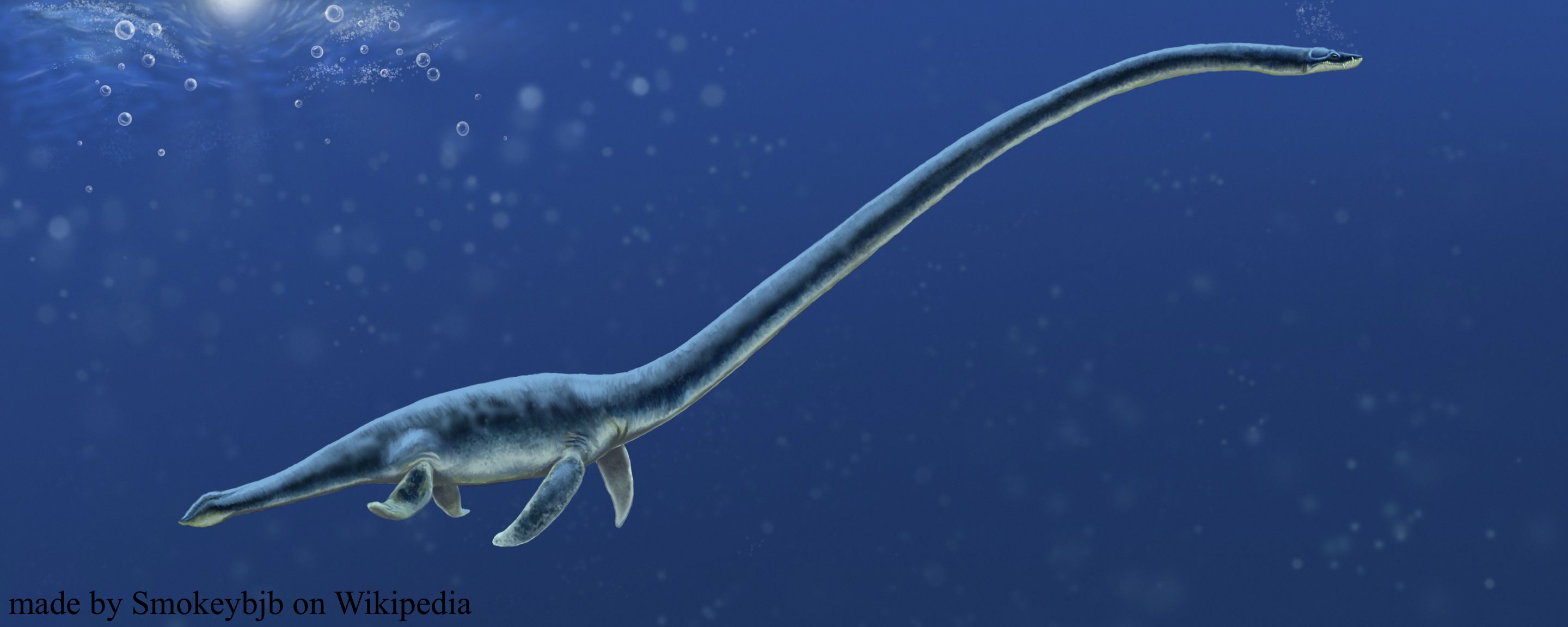Welcome to Albertonectes

Name Definition
Alberta’s swimmer
Name Given By
Tai Kubo, Mark T. Mitchell, and Donald M. Henderson in 2012
Location
Bearpaw Formation of Alberta, Canada
Classification
Reptilia, Sauropterygia, Plesiosauria, Elasmosauridae, Elasmosaurinae
Size
approximately 11.5 meters long, its neck is longest of any plesiosaur discovered and reached up to 7 meters, more than a half of its total body length
Temporal Range
Campanian of the late Cretaceous, ~73.5 million years ago
Ecological niche
large piscivore
Species/Sub Species
A. vanderveldei
Diet
Albertonectes would have consumed fish as well as crustaceans and other animals like mollusks such as squid
Introduction
Albertonectes is a genus of aquatic elasmosaurid reptiles that lived in Alberta during the late Cretaceous. The name Albertonectes means “Alberta swimmer” since it is from Alberta and the Greek nectes which is a common suffix for most plesiosaur genus names. The species name vanderveldei honors Rene Vandervelde, the founder of Korite International which is the gem-mining company that happened to come along the holotype, though he unfortunately passed away. Albertonectes is one of, if not the most well preserved elasmosaur to be unearthed from Canada, and the holotype consists of a complete postcranial skeleton with well-preserved remains. The holotype also shows signs of scavenging, as the coracoid (the bone responsible for stabilizing the shoulder joint) shows a mark from a tooth as well as two shed teeth which are believed to have come from the shark Squalicorax, as well as some small disturbances to the skeleton. While most elasmosaurids are noted for having necks longer than most other aquatic reptiles, Albertonectes made other elasmosaurs look tame in the neck length competition, as it had 76 cervical vertebrae that supported a 7 meter long neck, the longest of any plesiosaur and is more than half of its body length. It is also the longest elasmosaurid known in body length. This would have been an advantage for Albertonectes while hunting fish since it had a longer neck so it could reach out further to grab more food. Albertonectes lived with many ornithischians including hadrosaurs, the pachycephalosaur Stegoceras, the nodosaur Edmontonia, as well as the unrelated tyrannosaur Daspletosaurus. Besides land creatures, there were also a significant amount of aquatic reptiles found from the formation as well including the plesiosaurs Dolichorhynchops, Nakonanectes, Terminonatator, as well as the mosasaurs Mosasaurus, Tylosaurus, Prognathodon, and Plioplatecarpus. The turtle species Nichollsemys baieri was also present in the formation.